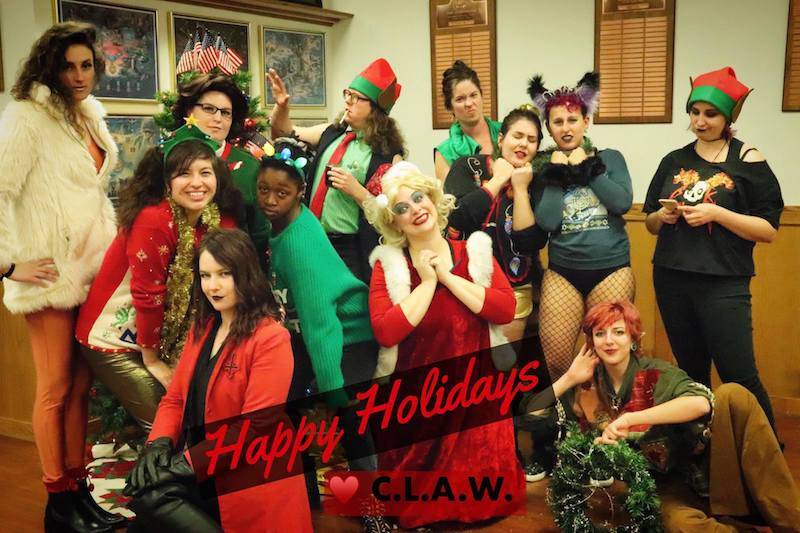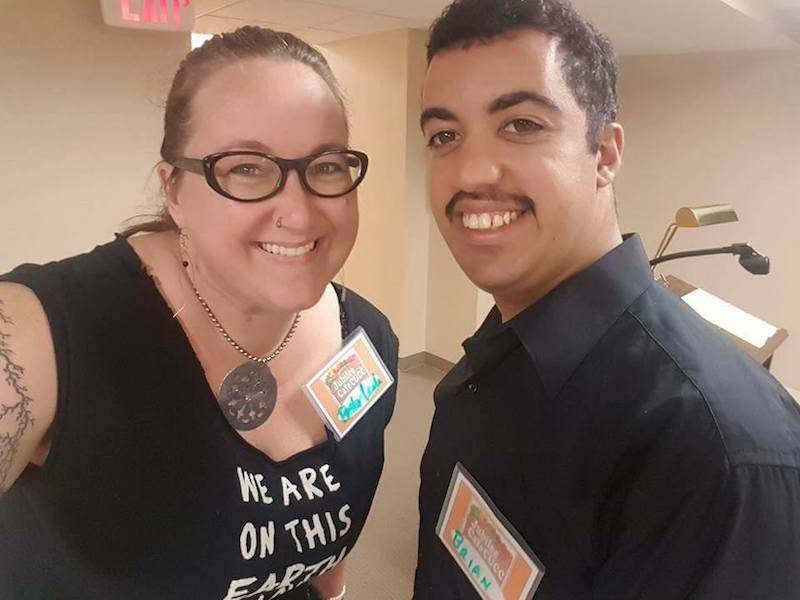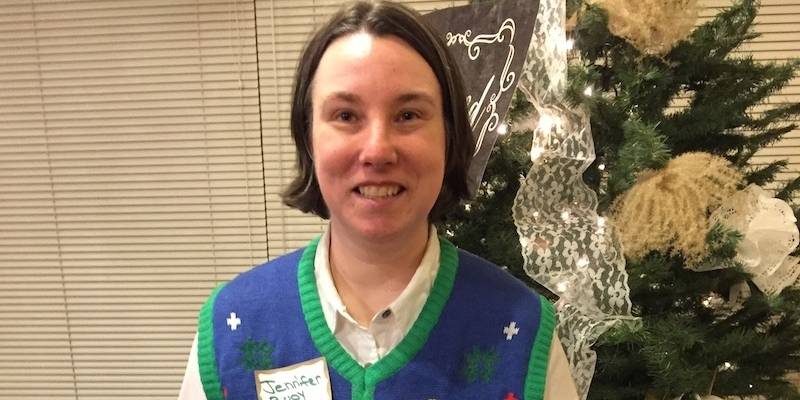Everyone wants to be included and feel comfortable during holiday celebrations. This is just as important for people with intellectual and developmental disabilities (I/DD) as anyone else. For some folks its easy to become involved. Others may need some extra support and help to be involved and contribute to celebrations in meaningful ways. Here are some suggestions on how to do this, and some examples from the C-U community.
Work Celebrations and Club/Organization Celebrations
People with I/DD may need support to feel included at the annual office or organization holiday party. Think of your job or other organizations/clubs you’re involved in. These may not be people you socialize with on a regular basis or talk to beyond the usual chitchat. Here’s some ideas on how to make your co-worker, or club member with I/DD, and anyone else feel more welcome at these events.
- Don’t only post flyers about the holiday party. Send everyone an email invitation. You can also specifically invite your co-worker with I/DD in person and offer to write down the event details, if that would be helpful. Transportation can be an issue for folks with I/DD.Some people drive, some do not. Some people take the bus, but others don’t, or may only know specific routes. To make sure your co-worker or associate with I/DD is included, ask them how they plan to get to the party. Offer to give them a ride or suggest people they can ask for a ride.
- Offer to introduce your co-worker or club member with I/DD to people at the party. Who might they share similar interests or values with? Support them by facilitating a conversation that they can participate in.
 Photo provided by CLAW
Photo provided by CLAW
Champaign Ladies Amateur Wrestling, or CLAW, is a collective of funny, smart, and creative women who perform a line-up of professional-style wrestling matches accompanied by live music. Angela Bronson, who identifies as having an I/DD, has been a member of CLAW since August 2018. She has been a part of a few performances, including the recent taping of CLAW’s skit for Travis Wayne Hurt’s XMAS SPECIAL. The annual special airs on Urbana Public Television and features holiday-themed skits performed by community members and groups.
Bronson said that she had a fun time at the taping. She wanted to join CLAW because she “wanted to hang out with strong women and have more female friends.” Angela doesn’t want to wrestle, but she participates as an extra, usually with Punky Bruiser. Punky includes Bronson in her matches and helps her figure out lines if she wants to have a speaking part.
“Wrestlers were more than excited to include Angela in the Christmas Special and made sure that she felt comfortable filming,” said Punky. “Angela has provided support in many ways during past CLAW shows. As wrestlers develop their matches, they talk to Angela about how she would like to be involved. She’s been a part of skits and filmed our last show on Facebook Live.” Bronson says that “Punky and everyone else are happy to have me there. I like being part of CLAW.”
Faith Community Celebrations
Some of the typical ways that people become involved in their faith community’s holiday celebrations are to volunteer to do a reading during a service or share their musical talents with a special number or by joining the choir. Faith community leadership may ask for volunteers to speak with them about these roles or to sign up on a posted flyer. Sometimes people with I/DD don’t realize that they can sign up to do these things, too. Or maybe they are nervous to sign up if they aren’t confident in their ability to contribute to the service in this way.
Consider specifically asking community members with I/DD if they’d like to be involved, and think creatively about supports and accommodations to include them. Give plenty of notice and understand that some people may need a while to prepare. People with I/DD my have extra anxiety about being the focus of everyone’s attention. Can they do a reading from their seat in the audience? Or would they like to do the reading with another person? Help facilitate a partnership with another member of the congregation, or partner with them yourself.
 Photo provided by CUCC
Photo provided by CUCC
Community United Church of Christ (CUCC) wants everyone to know that “No matter who you are or where you are on life’s journey, you’re welcome here, and we really mean it.” The Champaign church posts that tagline on their website, Facebook page, and in their literature. Brian Welch, who identifies as an adult with an I/DD, is a member of CUCC and attends regularly, along with his parents. Welch’s regular role in the church each Sunday is as a greeter, but he’s looking forward to participating in the annual Christmas Eve Service this year by playing special music. Welch takes piano lessons from CUCC’s organist, Brian Clark. The two have been preparing duets to perform on the piano and the organ. Welch says that two have been practicing since September because he “wants to play well in front of people.” When asked who makes him feel included and welcome to play special music, Welch said, “I like being there with Brian Clark and Pastor Leah.”
Celebrations with Family and Friends
Holiday gatherings with family and friends are fun times to spend together. Think of opportunities for your family member with I/DD to contribute and have a role in the celebration. Many families hand down recipes through generations. Helping a family member prepare a traditional family dish is a way for a person with I/DD to develop a role within the family. They can help someone with the dish until they are ready to take the lead with it.
Celebrations with family and friends can also become overwhelming and loud. Designating a “Quiet Room” will benefit everyone, not just a friend or family member with I/DD. That’s the room where your uncle can take a nap, and your moody teenager can read. It’s also a place where anyone, including someone with I/DD, can take a break from the noise and relax.
There are many more creative ways to include people with I/DD in holiday celebrations. How do people typically participate in celebrations you attend? What roles do they have? How can you support your family member, friend, or co-worker with I/DD fill these roles? Can any of the traditions or expectations be flexible so that everyone can contribute their talents and skills? Holiday celebrations are opportunities to build inclusive community and connections that continues to grow throughout the year.
Top photo provided by Jen Buoy








